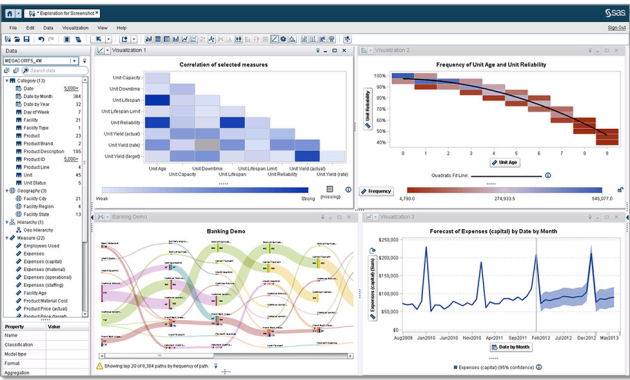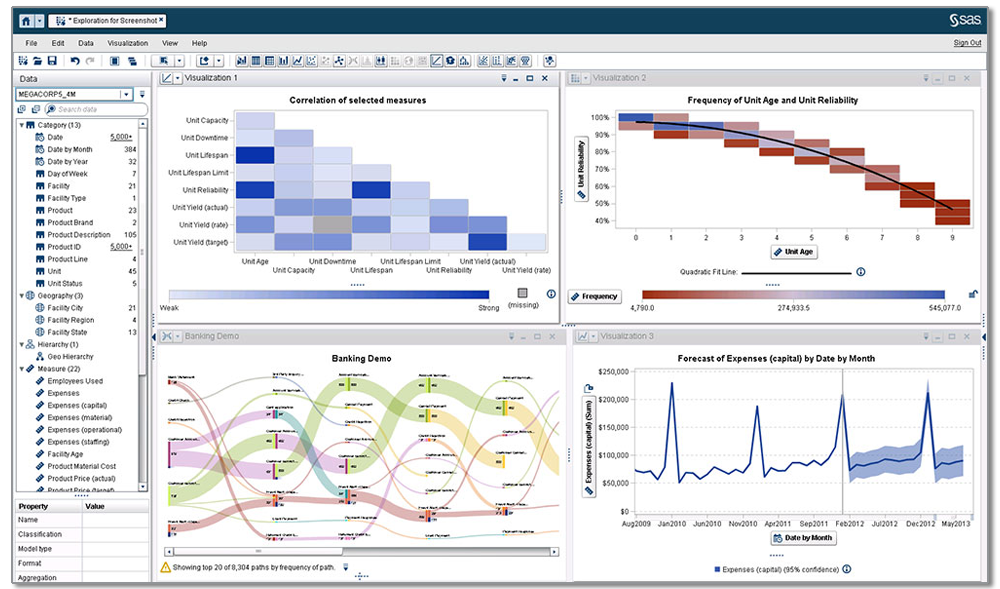
Business Intelligence Software for Better Budgeting: A Strategic Imperative
In today’s dynamic business landscape, effective budgeting is no longer a mere administrative task; it’s a strategic imperative. Organizations that can accurately forecast, allocate resources efficiently, and adapt quickly to changing market conditions hold a significant competitive advantage. This is where business intelligence (BI) software for better budgeting comes into play, transforming raw data into actionable insights and empowering financial decision-makers.
This article delves into the critical role of business intelligence software for better budgeting, exploring its benefits, key features, implementation strategies, and the impact it can have on an organization’s financial health. We will examine how businesses can leverage these powerful tools to optimize their budgeting processes and achieve their financial goals.
The Challenges of Traditional Budgeting
Traditional budgeting methods, often relying on spreadsheets and manual data entry, are fraught with challenges. These methods are frequently time-consuming, prone to errors, and lack the agility required to respond to rapid market shifts. Data silos, where information is scattered across different departments and systems, further complicate the process, hindering a holistic view of the organization’s financial performance.
Key limitations include:
- Time-Consuming Data Collection: Gathering data from multiple sources manually is a laborious and time-intensive process.
- Error-Prone Manual Calculations: Human error in data entry and calculations can lead to inaccurate budgets.
- Lack of Real-Time Insights: Traditional methods often provide a backward-looking view, making it difficult to identify and address emerging issues promptly.
- Limited Collaboration: Sharing and collaborating on spreadsheets can be cumbersome and inefficient.
- Difficulty in Forecasting: Forecasting future financial performance is challenging without advanced analytical capabilities.
How Business Intelligence Software Transforms Budgeting
Business intelligence software for better budgeting offers a robust solution to these challenges. By integrating data from various sources, automating data collection, and providing advanced analytical capabilities, BI software empowers organizations to create more accurate, efficient, and dynamic budgets.
The core benefits of using business intelligence software for better budgeting include:
- Automated Data Integration: BI tools automatically collect and integrate data from various sources, such as accounting systems, CRM systems, and sales databases, eliminating manual data entry and reducing errors.
- Real-Time Data Analysis: BI software provides real-time insights into financial performance, enabling organizations to monitor key metrics, identify trends, and make informed decisions quickly.
- Advanced Forecasting Capabilities: BI tools leverage statistical models and predictive analytics to forecast future financial performance with greater accuracy.
- Enhanced Collaboration: BI platforms facilitate collaboration among different departments and stakeholders, ensuring everyone is on the same page.
- Improved Reporting and Visualization: BI software offers powerful reporting and visualization tools, allowing users to create interactive dashboards and reports that communicate complex financial information effectively.
Key Features of Business Intelligence Software for Budgeting
To effectively support budgeting processes, BI software should include a range of features. These features enable organizations to streamline their budgeting workflows and gain valuable insights.
Data Integration and Management
The ability to seamlessly integrate data from various sources is crucial. This includes:
- Connectors to various data sources (databases, spreadsheets, cloud services).
- Data transformation and cleansing capabilities.
- Data warehousing for storing and managing large datasets.
Budgeting and Planning Functionality
Core budgeting features are essential for creating and managing budgets.
- Budget creation and allocation.
- Budget versioning and scenario planning.
- Budget approval workflows.
Reporting and Analytics
Powerful reporting and analytical tools are critical for gaining insights.
- Customizable dashboards and reports.
- Interactive data visualizations.
- Key performance indicator (KPI) tracking.
- Ad-hoc reporting capabilities.
Forecasting and Predictive Analytics
Predictive analytics helps organizations anticipate future financial performance.
- Statistical modeling and forecasting.
- Trend analysis.
- What-if scenario analysis.
Implementing Business Intelligence Software for Budgeting: A Step-by-Step Guide
Implementing business intelligence software for better budgeting requires a strategic approach. A well-planned implementation ensures a smooth transition and maximizes the benefits of the software.
- Define Objectives and Requirements: Clearly define your budgeting goals and identify the specific needs of your organization.
- Choose the Right Software: Research and select a BI software solution that aligns with your requirements and budget. Consider factors such as ease of use, scalability, and integration capabilities.
- Plan the Implementation: Develop a detailed implementation plan, including timelines, resource allocation, and data migration strategies.
- Data Integration and Preparation: Integrate data from all relevant sources and prepare the data for analysis.
- Build Budgets and Reports: Create budgets, reports, and dashboards that meet your specific needs.
- Train Users: Provide training to users on how to use the software effectively.
- Monitor and Optimize: Continuously monitor the performance of the software and make adjustments as needed.
Choosing the Right Business Intelligence Software
Selecting the appropriate BI software is crucial for success. Several factors should be considered during the selection process.
- Ease of Use: The software should be user-friendly and easy to learn.
- Scalability: The software should be able to scale to meet the growing needs of your organization.
- Integration Capabilities: The software should integrate seamlessly with your existing systems.
- Reporting and Analytics Features: The software should offer robust reporting and analytical capabilities.
- Cost: Consider the total cost of ownership, including software licensing, implementation, and ongoing maintenance.
- Vendor Support: Ensure the vendor provides adequate support and training.
The Impact of Business Intelligence Software on Budgeting
The adoption of business intelligence software for better budgeting significantly impacts various aspects of an organization’s financial operations.
- Improved Accuracy: Automating data collection and analysis reduces errors and improves the accuracy of budgets.
- Increased Efficiency: BI software streamlines budgeting processes, saving time and resources.
- Better Decision-Making: Real-time insights and advanced analytics enable more informed decision-making.
- Enhanced Collaboration: BI platforms facilitate collaboration among different departments, fostering a shared understanding of financial performance.
- Reduced Costs: By optimizing resource allocation and identifying cost-saving opportunities, BI software can help reduce overall costs.
By using business intelligence software for better budgeting, organizations can gain a significant competitive advantage. It enables them to make data-driven decisions, improve financial performance, and adapt to changing market conditions effectively.
Real-World Examples of Business Intelligence Software in Action
Many companies across various industries have successfully implemented BI software to improve their budgeting processes. Here are a few examples:
- Retail: A large retail chain uses BI software to analyze sales data, forecast demand, and optimize inventory levels, leading to improved profitability.
- Manufacturing: A manufacturing company uses BI software to track production costs, identify inefficiencies, and optimize resource allocation, resulting in significant cost savings.
- Healthcare: A healthcare provider uses BI software to analyze patient data, forecast revenue, and manage costs, improving financial stability.
Future Trends in Business Intelligence for Budgeting
The field of business intelligence software for better budgeting is constantly evolving. Several trends are shaping the future of this technology.
- Artificial Intelligence (AI) and Machine Learning (ML): AI and ML are increasingly being used to automate data analysis, improve forecasting accuracy, and identify hidden patterns in financial data.
- Cloud-Based BI: Cloud-based BI solutions are becoming more popular due to their scalability, flexibility, and cost-effectiveness.
- Mobile BI: Mobile BI allows users to access financial data and insights on the go, enabling faster decision-making.
- Data Visualization: Advanced data visualization tools are becoming more prevalent, making it easier for users to understand complex financial information.
Conclusion: Embracing Business Intelligence for Financial Success
Business intelligence software for better budgeting is no longer a luxury but a necessity for organizations striving for financial success. By embracing these powerful tools, businesses can transform their budgeting processes, gain valuable insights, and make data-driven decisions that drive growth and profitability. The ability to anticipate future trends and adapt quickly to changes is crucial. Investing in business intelligence software for better budgeting is a strategic move that can significantly impact an organization’s bottom line and ensure long-term financial health.
[See also: Related Article Titles]

